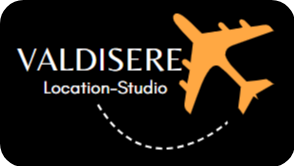When deciding where to attend dental school, many students may be confused by whether the dds or DMD is the best choice for them. It is important to note that the difference between these two degrees is merely academic, and neither one has any bearing on the quality of care received by patients. Instead, it is essential that prospective dentists do their research and decide on a school based on more significant factors, such as cost, curriculum, and location.
The difference between the DMD and DDS stems from when Harvard University first introduced the degree in 1867. At the time, they wanted to use a Latin term that would emphasize the medical nature of dentistry and therefore differentiate it from other professional degrees. The first choice they had was Chirurgae Dentium Doctoris, but they decided this did not have enough “ring” to it, so they consulted a latin scholar who suggested they tack on the word Dental as a suffix to the original term, thus creating the Doctor of Dental Medicine (DMD). The DMD is still the most popular degree in the United States, with about two thirds of dental schools offering it.
In addition to its standardized educational requirements, the DMD provides a number of opportunities for students to gain experience in various aspects of the field of dentistry. Choosing to specialize in a particular area allows for dentists to focus on their areas of interest and expertise, which in turn can improve the quality of care that they are able to provide to their patients.
Another aspect that makes the DMD more appealing to many prospective dentists is the fact that it does not require the same amount of post-graduate training as a DDS in order to qualify for work. This can reduce the overall amount of time it takes to become a dentist and make it possible for more individuals to enter into this profession.
Both the DMD and the DDS are highly respected degrees in the field of dentistry and are fully recognized by the American Dental Association. The differences between the two degrees only serve to reflect the changing demographics and healthcare paradigms in the United States, which have resulted in the need for more dentists to be able to integrate oral health into the overall healthcare system.
Whether or not you choose to pursue the DMD or the DDS, it is important that you carefully evaluate your dental options and select a doctor who has extensive credentials, including certifications from accredited dental schools. Taking the time to read online reviews and ask for recommendations from friends and family will help you find the best dentist for your individual needs.
When looking for a dds, it is also crucial to ensure that the dentist is well-versed in the latest technology and advancements in the field of dentistry. You should also take the time to check the dentist’s reputation in the community and verify their memberships with professional organizations. In addition, you should be sure to ask about their education and training as these will have a direct impact on the level of care that you receive.
